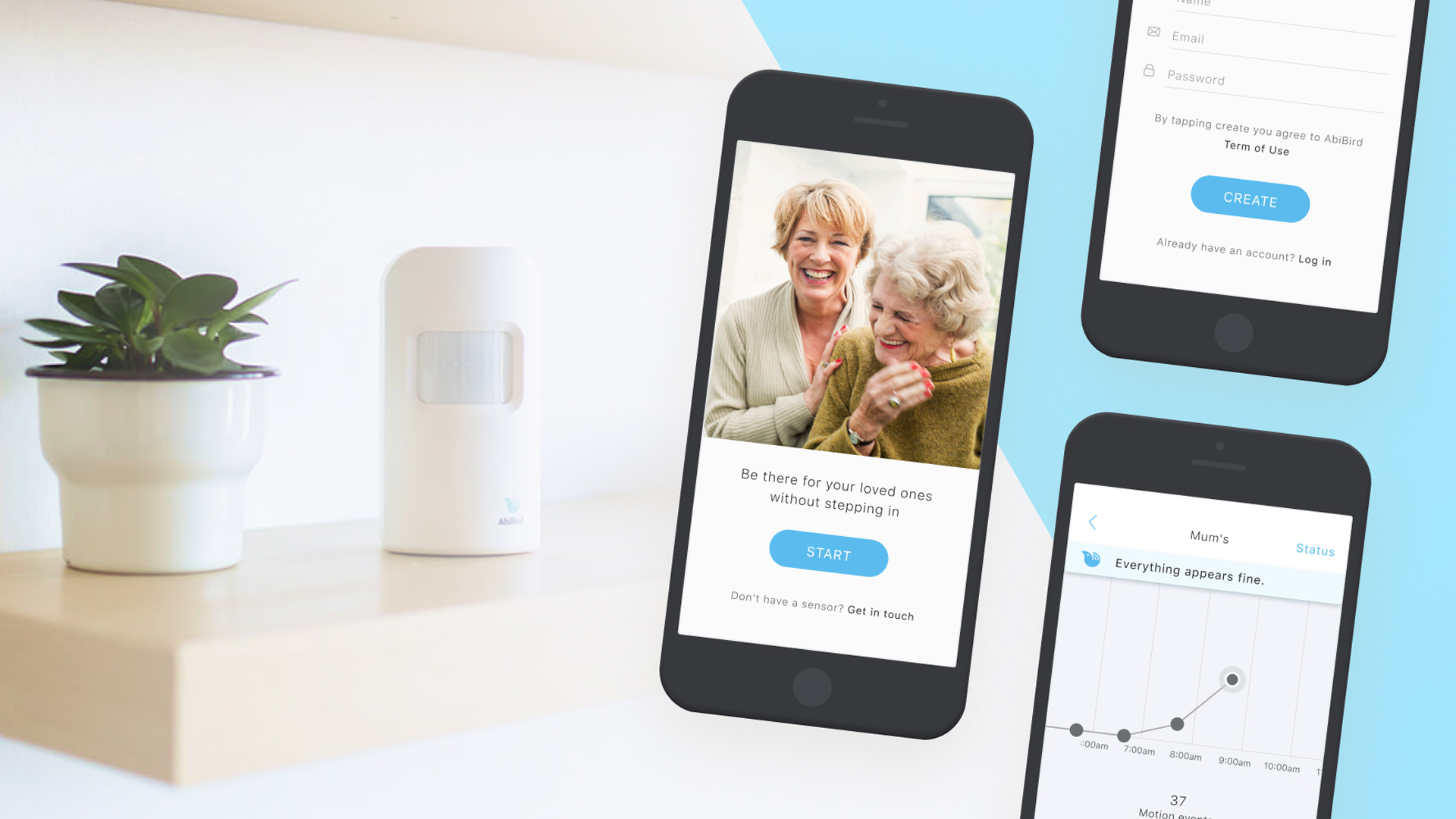Most people want to live independently for as long as they can. But statistics show that the likelihood of serious, accidental injury within the home increases significantly as people get older. If someone needs help, their loved ones need to know.
ATF Services – a leading outdoor security surveillance technology provider – developed an unobtrusive motion sensor technology to track user activity. ATF Services partnered with DEPT® to develop an app that is compatible with their technology to utilise this activity information to alert if a loved one is in distress.

An app for the AbiBird sensor
Every year 1, in 3 Australians over the age of 65 has a substantial fall. Most falls happen at home. What if that person lives alone?
ATF Services developed motion sensor technology that’s capable of understanding and tracking normal day and night activity within a home. The sensor itself was the product of years of research and testing.
The concept was for DEPT® to build an app to host the AbiBird sensor and act as the central management system of an individual’s activity, patterns, and alerts to loved ones. The AbiBird app would converge ATF’s existing technology with a compatible platform, using this data to determine if someone is in distress, and share alerts accordingly.
Connecting the elderly with caregivers
We built the AbiBird app, which can be used to control the AbiBird sensors. Sensors can monitor routines such as waking up or going to bed. If activity exceeds normal routines or stops altogether, the app sends an alert to loved ones.
We also developed the cloud infrastructure for the AbiBird motion sensor using a cellular communications technology called the Narrowband Internet of Things (NB-IoT).
On the heels of AbiBird’s success, ATF Services continued researching NB-IoT and developed a wearable alert button, which our team helped develop into the AbiButton. When activated, it sends a distress notification to caregivers, including the location of the wearer.
With the end user being older individuals, accessibility was a priority. We focused on addressing mobility issues and made sure buttons were bigger, handles were easy to hold, and text was easy to read. All devices and supporting apps share one vision: to be simple and unobtrusive while being 100% reliable on both ends.
Technical ingenuity puts AbiBird on the road to international distribution
We were one of the first teams in Australia to use NB-IoT technology. It allows us to use low-power sensors without complex systems that eat up energy and need a 3G or 4G connection. As NB-IoT has become more widely available, Abibird has expanded to the US and Europe. Further international growth of the AbiBird solution is continuing at a rapid pace.
Questions?
SVP of Creative & Media



